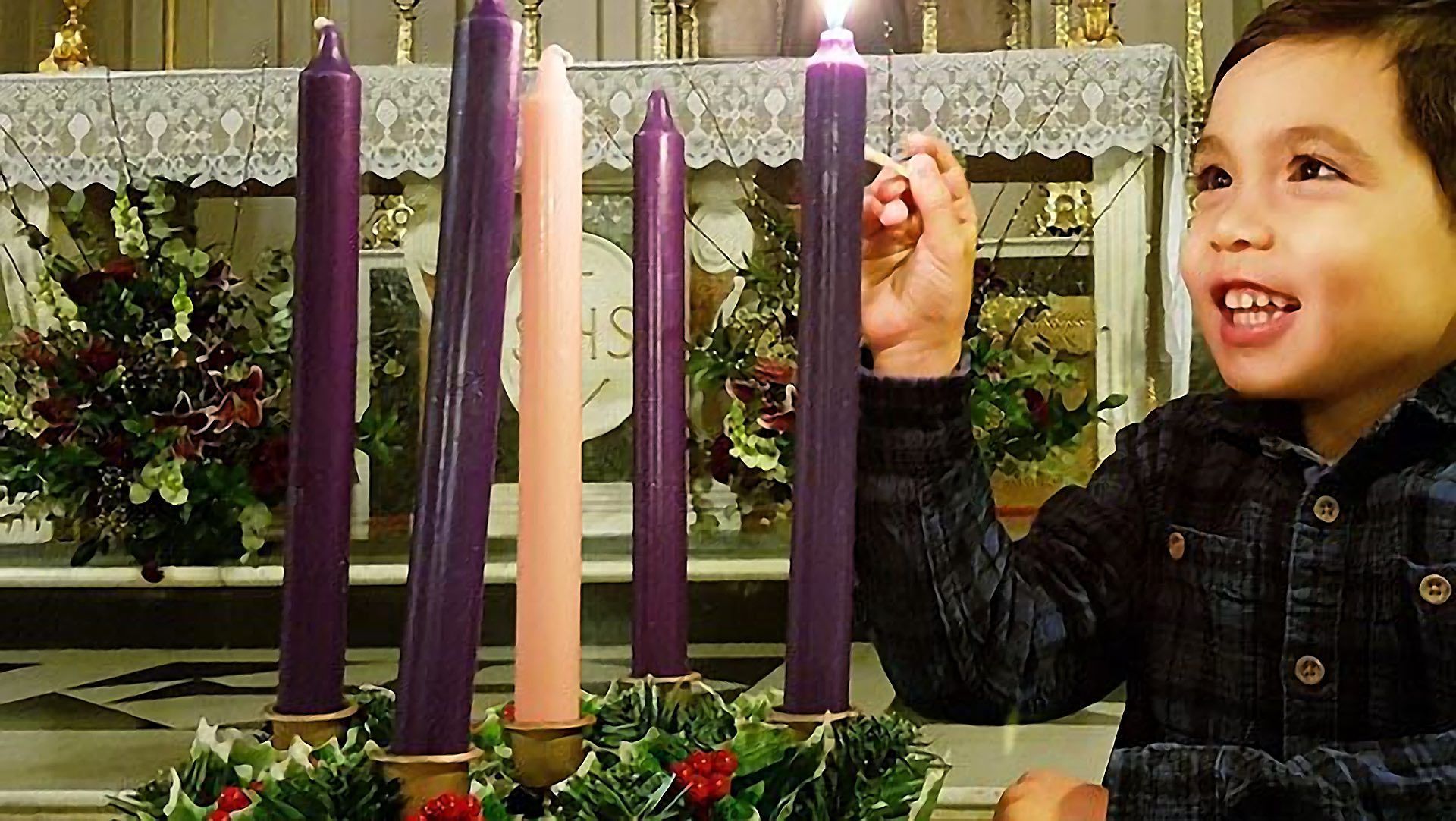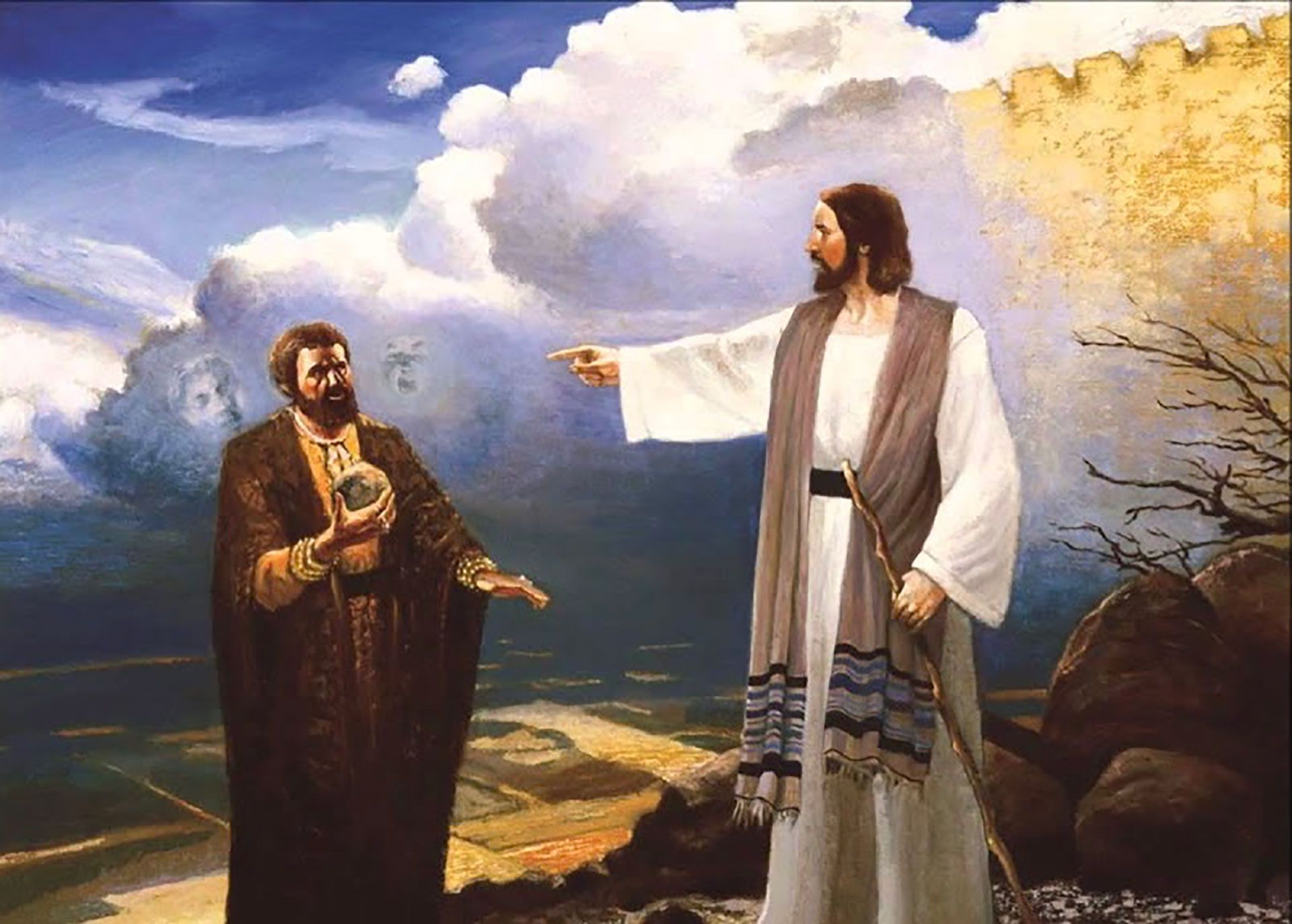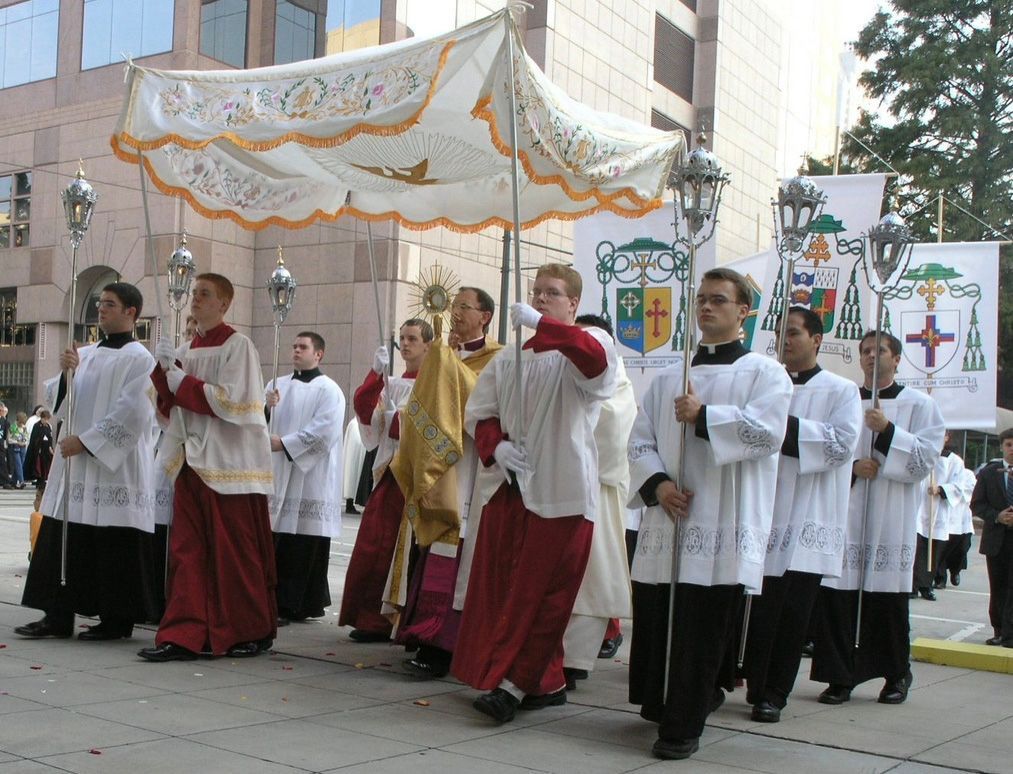In The Darkness We See Farther
Pondering the Paradox of the "Dark Knowing" of Faith

As human beings we are very visual and there is a certain demand of our flesh to see on its own terms. But of course, God, who is pure spirit, will not be seen in this way.
How can the human eye perceive what is spiritual? It is not designed to do so. We cannot see God, as God, any more than we should expect to be able to see justice sitting down to lunch with humility. These are not physical concepts; they are metaphysical ones. We may see evidence of their existence, but we do not physically see them. And so also with God. We see lots of evidence of His existence, but we do not see Him with our earthly eyes.
There is a well-known (but inaccurate) saying, “Seeing is believing.” But actually, it is not; seeing is only seeing. When we see physical things or events, one of two things happens, either of which eliminates the existence of any sort of faith:
1. We see something and accept it as true, in which case faith is no longer necessary, for it is not necessary to believe what we can plainly see.
2. We scoff or act bemused and continue to disbelieve, saying (for example when we see a magic trick), “There’s a way of doing that; it’s just an illusion.”
In either case, faith (human or supernatural) is set aside when we see something with our earthly eyes.
Therefore, as Scripture insists over and over again, faith is not a matter of seeing in a physical way.
- Now faith is the substance of things to be hoped for, the evidence of things that appear not (Hebrews 11:1).
- So we fix our eyes not on what is seen, but on what is unseen, since what is seen is temporary, but what is unseen is eternal (2 Cor 4:18).
- For we walk by faith, not by sight (2 Cor 5:7).
- For in this hope, we were saved. But hope that is seen is no hope at all. Who hopes for what they already have? (Rom 8:24)
- For now, we see only a reflection as in a mirror; then we shall see face to face. Now I know in part; then I shall know fully, even as I am fully known (1 Cor 13:12).
- And though you have not seen [Jesus], you love Him, and though you do not see Him now, but believe in Him, you greatly rejoice with joy inexpressible and full of glory, obtaining as the outcome of your faith the salvation of your souls (1 Peter 1:8-9).
- Blessed are those who have not seen and yet believe (John 20:29).
- So faith comes from hearing, and hearing through the word of Christ (Rom 10:17).
St. Thomas Aquinas says, Faith is a habit of the mind whereby eternal life is begun in us, making the intellect assent to what is non-apparent(Summa IIa IIae 4 ad 1).
Therefore, faith is not about what is seen with our earthly eyes. It comes from hearing—hearing the Word of God.
That said, faith is a way of knowing and thus also a way of “seeing,” but more in the intellectual sense, as when we say, “Oh! Now I see” when we grasp a point intellectually. And though we know and “see” by faith, spiritual theologians such as St. John of the Cross remind us that the seeing and knowing by faith is “obscure.”
Now usually we think of the word “obscure” with a negative connotation. If something is obscure, it is tricky or hard to figure out and we look for something to illumine the darkness, to scatter the obscurity.
Not so fast. Consider the deeply paradoxical notion that the darkness, the obscurity actually helps us to see better! Fr. Reginald Garrigou-Lagrange explains it this way:
Obscure faith enlightens us somewhat like the night, which though surrounding us with shadows, allows us to see the stars, and by them, the depths of the firmament. … That we may see the stars, the sun must hide, night must begin. Amazingly, in the obscurity of the night we see to a far greater distance than in the day; we see even the distant stars which reveal to us the immense expanse of the heavens. … [And so] faith, although obscure, opens up to us the supernatural world and its infinite depths: the Kingdom of God, His inner life, which we shall see unveiled and clearly in eternity. (The Three Ages of the Interior Life, Tan Publications Vol 1, p. 361)
In the darkness we see farther and deeper into space. Sunlight is precious, but it envelops us; it closes us in a much smaller world. We see better what is near; what is farther off and higher up is lost to us. From the perspective of our physical senses, faith is a “dark” knowing or seeing. By it we see farther and higher, longer and deeper.
Fr. Garrigou-Lagrange continues,
Faith is obscure but it illumines our intellect … in a way very superior to the senses and to reason. … What is evident for our senses is sensible, not spiritual; therefore, it is not God himself. … Now faith makes us attain here on earth the inner life of God in the penumbra, in obscurity. Consequently, a man who preferred visions to infused faith would deceive himself … for he would prefer what is superficial and exterior, and what is accessible to our faculties, to what surpasses them. He would prefer figures to the divine reality. (Ibid).
And therefore, we must beware of the strong demand of our flesh to see on its own terms. Our earthly eyes are not going to see God on the terms that our flesh demands. He is just too immanent, too transcendent for that. Our eyes see what physically exists but not Existence Himself. If we yield to this demand of our flesh, we are going to limit our world immensely. We will certainly see worldly and physical things well, but we will miss the greater portion of reality: the Kingdom of God and God Himself!
Welcome to the modern world; a small world increasingly closed in on itself; a world no longer enchanted and charged with mystery; a world that demands to see only in physical terms, preferring what is superficial and exterior, preferring the creature rather than the Creator, who is blessed forever.
Ponder the great paradox of the “darkness” and “obscurity” of faith. For in the humility of accepting the darkness, we see farther, higher, deeper, and longer. Jesus is the Light of the world. But we see Him in the “darkness” of faith and understand Him most clearly not by the false light of this world, but by faith. Faith is obscure to our senses, but understood by our souls as a necessary condition to loving Him as our only and true Light.
Inspired Reflections










